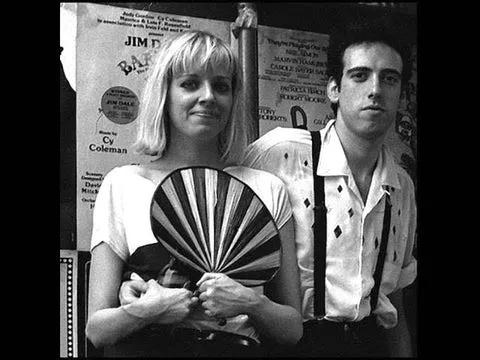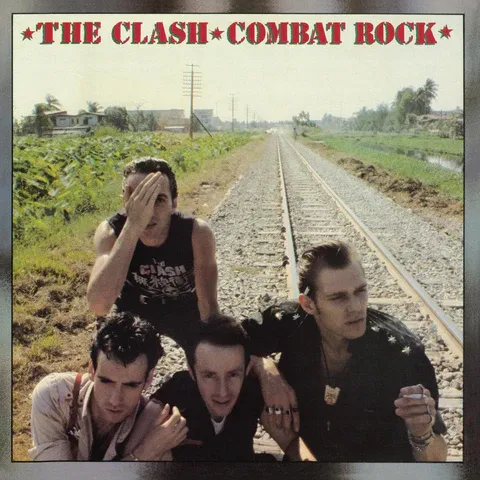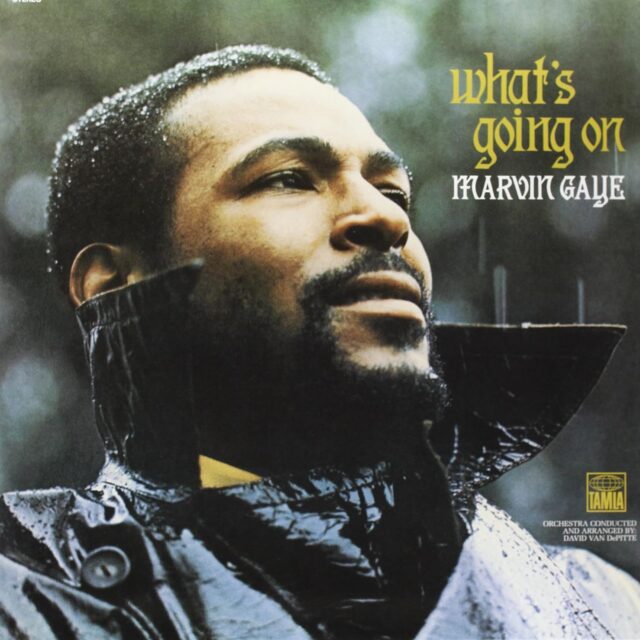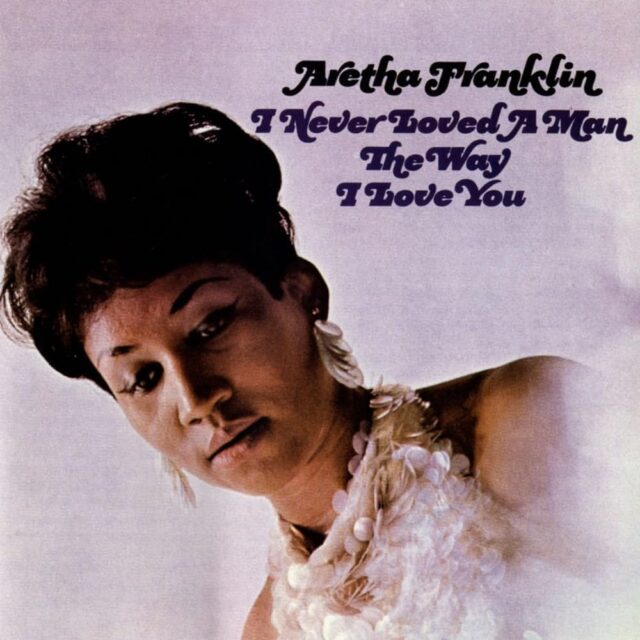Formed in June 1976, British punk band The Clash quickly gained a reputation for embedding social and political themes into their music. Their debut single on March 18, 1977, White Riot, captured the frustrations of youth with lyrics directly critiquing police violence and racial tensions in the UK.
That same year, on April 8, 1977, the band released their self-titled debut album, The Clash, which solidified their stance as one of punk’s most outspoken voices.
The Clash consisted of Joe Strummer (vocals, rhythm guitar), Mick Jones (lead guitar, vocals), Paul Simonon (bass guitar, backing vocals), and Topper Headon (drums, percussion).
I gotta know right now
In 1978, The Clash released Give ‘Em Enough Rope, followed by London Calling in 1979, which became a defining album for the band. Around this time, Jones met Ellen Foley, known for her duet on Meat Loaf’s Paradise by the Dashboard Light from Bat Out of Hell. The two started dating in 1979.
Jones’s relationship with Foley ended in 1981, coinciding with when the band began work on what would become Combat Rock. They initially recorded at Ear Studios in London before moving to Electric Lady Studios in New York in early 1982. The song “Should I Stay or Should I Go” on Combat Rock was written by Jones and has been said to be inspired by his on-and-off relationship with Foley.
“That’s the story. I’m neither here to deny nor confirm because I never asked him. Everybody else talks about it, saying, ‘That song is about you.’ Yeah, it’s fun to hear. It’s fun to hear anything you’re involved with on the radio. It’s so cool, and it always will be.” said Foley during an interview.
The Clash released the song ‘Should I Stay or Should I Go’ on June 10, 1982, by which time they had already cemented their place as one of punk rock’s most influential groups.
Though often speculated to reflect tension within the band or Jones’s personal relationships, Should I Stay or Should I Go is “just a good rockin’ song.”
In a 1991 interview, Jones stated, ‘It wasn’t about anybody specific, and it wasn’t pre-empting my leaving The Clash. It was just a good rockin’ song, our attempt at writing a classic… When we were just playing, that was the kind of thing we used to like to play.’
Despite their success, the relentless touring and recording took their toll. The Clash’s eventual breakup stemmed from internal tensions: Jones sought mainstream success, clashing with Strummer’s more political, punk vision. Headon’s heroin addiction led to his firing in 1982, further destabilizing the band. Simonon, caught between Jones and Strummer, grew frustrated with the band’s direction helped contribute to the split. By 1983, Jones had been fired.
Lyrically: Should I Stay Or Should I Go
The opening lyric, “Oh! Hola!” can be interpreted as playful right from the start. “Hola,” the Spanish word for “hello,” is quickly followed by emotional uncertainty in the lines:
Darling, you got to let me know
Should I stay, or should I go?
If you say that you are mine
I’ll be here till the end of time
So you got to let me know
Should I stay, or should I go?
These lyrics, in a pleasant manner, ask for an understanding of the relationship’s status while emphasizing a need for clarity. The memorable and relatable question “Should I stay, or should I go?” seeks a definitive answer.
The follow-up lyrics, “If you say that you are mine, I’ll be here till the end of time,” suggest a willingness to commit, but only if reciprocated. The repetition of “So you got to let me know, should I stay or should I go?” brings an urgency for direction.

It’s always tease, tease, tease
You’re happy when I’m on my knees
One day it’s fine, and next it’s black
These lyrics depict a relationship marked by uncertainty, unpredictability, and apologies. The line “It’s always tease, tease, tease” and “You’re happy when I’m on my knees” suggest a power struggle is at play.
So if you want me off your back
Well, come on and let me know
Should I stay, or should I go?
The line “So if you want me off your back, well, come on and let me know” emphasizes the desire for an answer, followed by a plea to ease the continued uncertainty.
If I go, there will be trouble
And if I stay, it will be double
So come on and let me know
These lyrics reveal a frustration coupled with an awareness that the relationship has become a no-win situation for either side. “If I go, there will be trouble” suggests that ending things won’t be easy, likely leading to conflict. Yet, “if I stay, it will be double” implies that staying in the relationship will only multiply the emotional toll. The words “come on and let me know” again ask for a decision to move off the edge, out of limbo.
The inclusion of Spanish lyrics in the song was a spontaneous idea by Strummer. In a 1991 interview, he recalled, “On the spur of the moment, I said, ‘I’m going to do the backing vocals in Spanish’… We needed a translator, so Eddie Garcia, the tape operator, called his mother in Brooklyn Heights and read her the lyrics over the phone, and she translated them. But Eddie and his mum are Ecuadorian, so it’s Ecuadorian Spanish that me and Ely are singing on the backing vocals.”
This indecision’s bugging me (Esta indecisión me molesta)
If you don’t want me, set me free (Si no me quieres, librarme)
Exactly whom I’m supposed to be (Dígame que tengo ser)
Don’t you know which clothes even fit me? (Sabes que ropa me “quedrá”?)
Come on and let me know (Me tienes que decir)
Should I cool it, or should I blow? (Me debo ir o quedarme?)
Split
These lyrics convey ongoing frustration with the relationship. “This indecision’s bugging me” shows the lack of clarity has now become a mental strain, while “If you don’t want me, set me free” captures a feeling of being trapped in a system of indecision.
The line “Exactly whom I’m supposed to be” suggests that there has been a loss of identity due to the relationship, and that a basic understanding of who they are is missing, evident in the lyrics “Don’t you know which clothes even fit me?”
“Should I cool it, or should I blow?” expresses the conflict between staying calm or reacting strongly.
The shouted “split” in “Should I Stay or Should I Go” is widely regarded as a happy accident, kept for the authenticity it brought to the track. The moment occurred during the recording session when Strummer and guest vocalist Joe Ely startled Jones in the vocal booth.
The final lines of the chorus, “So ya gotta let me know / Should I stay or should I go?” emphasize that the question remains unresolved, creating a lifetime of tension.
Though “Should I Stay or Should I Go” wasn’t an immediate hit in 1982, the song gained renewed popularity in early 1991 after being featured in a Levi’s jeans commercial. This led to its re-release in 1991, when it topped the UK charts and made it into the top 10 in multiple European countries.
In the November 2004 issue, Rolling Stone ranked “Should I Stay or Should I Go” by The Clash at number 228 on its list of the “500 Greatest Songs of All Time.”





